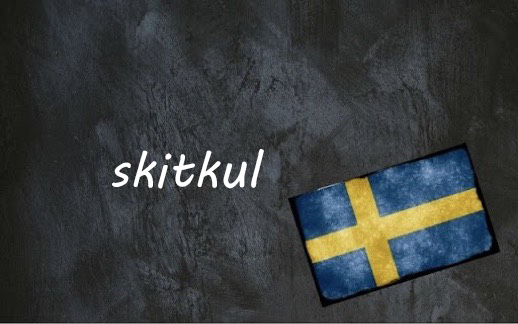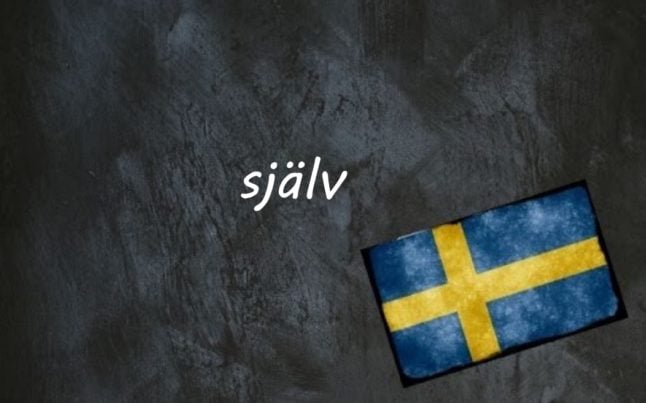And it’s got the word for “shit” in too, which always makes for a great word in Swedish.
Swedish is a language that lends itself well to building new words, and often some colourful prefixes can be found appended to many different nouns. One of those prefixes is skit-, which, you guessed it, means ‘shit’. Skit- is used both negatively and positively, and should be seen as emphasizing whatever the word it is attached to is trying to convey. It is less offensive than “shit” would be in English. You can happily use skitkul in conversation with your mother-in-law (or in a headline on a news website).
Skit- should also not be pronounced as the English ‘skit’, but sounds more like a boiling kettle trying to say ‘shit’. If you can imagine that. Here’s the phonetic spelling /ˈɧiːt/ in case anyone knows how to read it.
Another lovely example of the ever-present skit- prefix is skitfet. It literally means ‘shit-fat’, but is used in somewhat the same sense as ‘phat’, which as most of you know means ‘cool’, but naturally in a cooler way.
As previously mentioned, skit- can be found in many words, like, skitnära (shit-near), skitful (shit-ugly), skitäckligt (shit-disgusting), skitunge (shit-kid), skitbra (shit-good), skitrolig (shit-funny), skitstor (shit-big), skitball (a shit-good time), and so on and so forth. In fact, a good way of becoming more integrated into Swedish society might be trying to build new words with the prefix skit-. Many Swedes, I am sure, will be more than happy to assist.
Then there is the second part of our beloved word skitkul, which is -kul. And kul is kul, and generally understood to mean ‘fun’, as in something being fun.
The origin of this word, however, is a bit murky. Some say it originates in the Finnish word kyllä, meaning ‘yes’ or ‘sure’, but another possible origin can be found in the Romani word ‘kul’ which means ‘completely’. That is then supposed to have merged with a Swedish word for something being ‘successful and excellent’, kulan, which can be seen in the expression ‘kulan i luften’, meaning either ‘the ball’ or ‘the bullet in the air’.
We can only guess where that phrase originates. Perhaps a reference to gambling, as in the ball is flying into the roulette wheel, or maybe to war in the case of it meaning bullet. But that might be the stuff of another article.
It’s been skitkul to examine this wonderful word with you. Best of luck putting it to use!
By Alex Rodallec
Villa, Volvo, Vovve: The Local’s Word Guide to Swedish Life, written by The Local’s journalists, is now available to order. Head to lysforlag.com/vvv to read more about it. It is also possible to buy your copy from Amazon US, Amazon UK, Bokus or Adlibris.



 Please whitelist us to continue reading.
Please whitelist us to continue reading.
Member comments